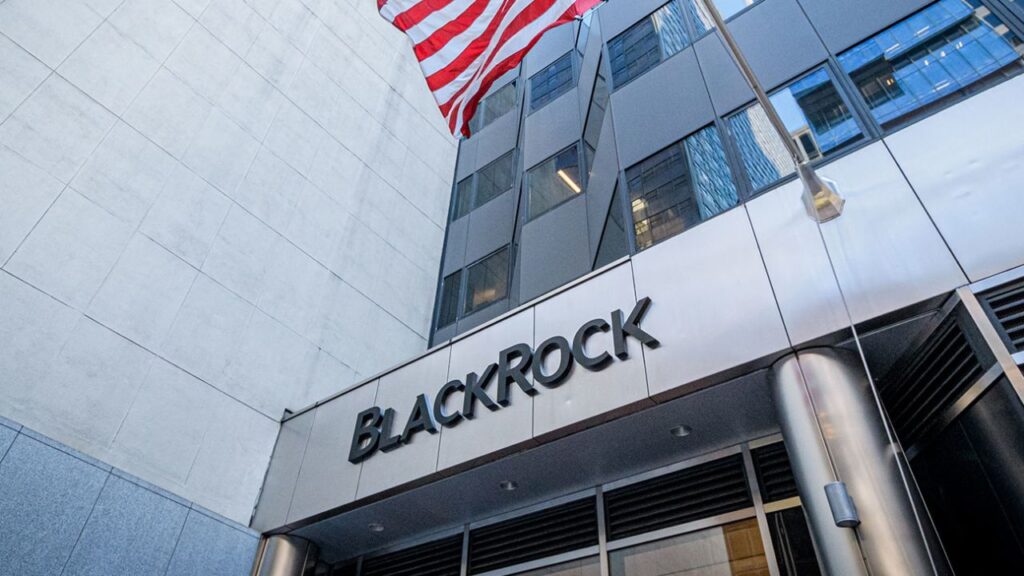An anonymous individual recently made an astonishing move in the world of Bitcoin, spending approximately $64,000 in transaction fees to engrave nearly 9 megabytes of raw binary data onto the Bitcoin blockchain.
The event took place on January 6th, around 11:20 am UTC, and it involved the use of over 1 Bitcoin to create a total of 332 inscriptions.
The peculiar aspect of this event is the enigmatic nature of the data.
Despite the extensive use of resources, no one has been able to decipher or discern the meaning behind this raw binary data. Even attempts to employ advanced AI systems like OpenAI’s ChatGPT yielded no meaningful insights.
Speculations have arisen suggesting that the data may be encrypted, making it potentially impossible or extremely difficult to decrypt.
Leonidas, the host of The Ordinal Show, acknowledged this possibility in a post on January 7th.
In addition to the enigma surrounding the data itself, questions have arisen about the identity of the individual responsible for these inscriptions.
READ MORE: Grayscale Rebalances Crypto Portfolios, Adds Avalanche and XRP While Removing MATIC
The Bitcoin address associated with this mysterious endeavor, “bc1pnp…zwd0th,” is labeled as “Unnamed” on Ord.io, adding another layer of intrigue.
Interestingly, among the 332 inscriptions, two of them are adorned with a symbol depicting a digital pepperoni pizza.
Ord.io explained that this symbol signifies that these inscriptions contain satoshis originating from the famous 10,000 BTC transaction used to purchase two Papa John’s pepperoni pizzas on May 22, 2010, by early Bitcoin contributor Laszlo Hanyecz.
This event comes on the heels of another Bitcoin-related mystery. Just one day prior, on January 5th, a substantial sum of 26.9 BTC, equivalent to $1.17 million, was sent to Bitcoin’s Genesis wallet, the first-ever Bitcoin wallet created. This event sparked a flurry of theories within the cryptocurrency community.
Conor Grogan, a director at Coinbase, pondered whether this sudden transfer was an awakening of Satoshi Nakamoto or if someone had intentionally “burned” a million dollars.
Jeremy Hogan, a prominent pro-XRP lawyer, speculated that it could be an attempt to expose the anonymous Bitcoin creator, as reporting such a large sum to the United States Internal Revenue Service might be legally mandated.
However, it’s important to note that such a theory would only be applicable if Satoshi Nakamoto were indeed subject to U.S. tax laws, adding another layer of complexity to the ongoing Bitcoin mysteries.
Numerous applicants vying for a coveted spot in the Bitcoin exchange-traded fund (ETF) arena have hastened to submit their final Form S-1 amendments to the United States Securities and Exchange Commission (SEC) on Monday, January 8, as anticipated.
Leading the charge, asset manager Valkyrie was among the initial companies to file its ultimate S-1 amendment just ahead of the January 10 deadline, widely anticipated as the approval date for the inaugural spot Bitcoin ETFs in the United States.
Following Valkyrie’s lead, a flurry of filings ensued from notable players in the financial industry, including WisdomTree, BlackRock, VanEck, Invesco, Galaxy, Grayscale (utilizing an S-3 filing), ARK Invest, 21Shares, Fidelity, Bitwise, and Franklin Templeton.
These new submissions herald the commencement of a potentially historic week for Bitcoin, as these hopeful issuers are anticipated to complete their Form S-1 amendments on this very day.
These amendments contain crucial information pertaining to fees and the identities of potential ETF market makers.
Several filers have significantly slashed trading fees for their prospective spot Bitcoin ETF products.
Notably, ARK and 21Shares, in their latest S-1 filing, announced their intention to waive the 0.25% fee for the first $1 billion in assets under management (AUM) for a six-month period post-listing.
BlackRock’s Bitcoin ETF, on the other hand, will impose a 0.3% fee following an initial 0.2% fee for the first 12 months or until reaching $5 billion in AUM.
Eric Balchunas, an ETF analyst at Bloomberg, believes that the ongoing fee competition among potential spot Bitcoin ETFs may not have a substantial impact on the market’s competition dynamics, stating that long-term investors primarily focus on regular fees.
READ MORE: Bitcoin Prepares for Volatility as U.S. Spot ETF Decision Looms in 2024
Aside from fees, some filers, including BlackRock, have disclosed details about seeding their spot Bitcoin ETFs.
BlackRock revealed that its trust acquired 227.9 BTC worth $10 million on January 5, 2024, using the proceeds from seed creation baskets.
As of the prospectus date, these 400,000 shares represent the total outstanding shares of the trust.
Meanwhile, ARK and 21Shares intend to purchase the initial seed creation baskets for $437,000 “on or about” January 8, with plans to acquire Bitcoin “at or prior” to listing shares on the Cboe BZX Exchange.
In contrast to S-1 filers, Grayscale Investments opted for an updated S-3 form registration statement, proposing a 1.5% spot Bitcoin ETF fee.
The firm also listed designated liquidity providers such as Jane Street, Virtu, Flow Traders, and Flowdesk, as well as authorized participants like Jane Street, Virtu, Macquarie, and ABN Amro.
At the time of reporting, 10 potential issuers have submitted updated S-1s, positioning them as the frontrunners to potentially become the first spot Bitcoin ETFs in the United States, as noted by Fox Business’ Eleanor Terrett.
Additionally, there is still a possibility that Hashdex could join this initial wave of ETFs if it submits a last-minute filing today.
OpenAI and Microsoft are facing yet another copyright infringement lawsuit, as nonfiction authors Nicholas Basbanes and Nicholas Gage have taken legal action against the tech giants, claiming that they used their copyrighted works to develop their artificial intelligence (AI) system.
The lawsuit, filed on January 5th in a Manhattan federal court, closely follows a similar lawsuit brought by The New York Times against Microsoft and OpenAI a week earlier.
The NYT’s complaint alleges that the companies used the newspaper’s content to train AI chatbots and seeks “billions of dollars” in damages.
OpenAI had previously acknowledged the importance of compensating copyright owners for the use of their work.
In response to the ongoing legal battles, OpenAI stated that they respect the rights of content creators and are committed to collaborating with them to ensure they benefit from AI technology and new revenue models.
The Basbanes and Gage lawsuit, however, specifically seeks damages of up to $150,000 for each instance of copyright infringement.
This latest legal challenge adds to a growing list of lawsuits against OpenAI and Microsoft.
READ MORE: Grayscale in Talks with JPMorgan and Goldman Sachs for Proposed Spot Bitcoin ETF Partnership
In September, a professional organization for published writers, including renowned authors like George R.R. Martin, John Grisham, Jodi Picoult, George Saunders, and Jonathan Franzen, joined a proposed class-action lawsuit against OpenAI.
Additionally, author Julian Sancton has filed a lawsuit against OpenAI and Microsoft, alleging unauthorized use of his work to train AI models.
OpenAI is also grappling with another class-action lawsuit in California, filed by Clarkson Law Firm in June 2023. This lawsuit accuses OpenAI of scraping private user information from the internet to train their popular chatbot, ChatGPT.
The suit contends that OpenAI collected data from millions of social media comments, blog posts, Wikipedia articles, and family recipes without the consent of the respective users.
These lawsuits collectively raise concerns about the protection of intellectual property rights in the rapidly evolving field of AI, highlighting the legal challenges faced by tech companies that use copyrighted materials to develop their AI systems.
The outcomes of these cases will likely have significant implications for the future use of copyrighted content in AI development and the potential financial repercussions for the companies involved.
Mercari, one of Japan’s largest e-commerce platforms, is set to introduce Bitcoin as a payment option for its flea market app-listed products starting in June.
This exciting development comes as the platform seeks to tap into the growing popularity of cryptocurrencies in the country.
According to a report from Nikkei, Mercari will facilitate Bitcoin transactions through its Tokyo-based crypto exchange subsidiary, Melcoin.
While the prices of products listed on the flea market app will be displayed in Japanese yen, users will have the option to pay with Bitcoin.
Interestingly, the vendors and sellers on the platform will still receive their payment in the local fiat currency, as Mercari plans to convert the Bitcoin to yen in real-time through its exchange partner.
Mercari has established itself as one of Japan’s premier consumer-to-consumer e-commerce marketplaces, boasting an impressive user base of 22 million monthly users.
Launched in 2013, it quickly became the country’s leading community-based e-commerce platform, with a staggering 94% usage rate.
In the third quarter of 2023, the platform reported a profit of 2.8 billion yen (approximately $19.4 million).
READ MORE: Bitcoin ETFs Emerge as a Solution to Unit Bias Psychology in Cryptocurrency Investment
The decision to incorporate Bitcoin as a payment option is expected to further encourage the adoption of cryptocurrencies among the tech-savvy population of Japan.
This move is not the first foray into the world of cryptocurrencies for Mercari.
The company recently introduced the Mercari Bitcoin crypto trading service, enabling users to buy and sell Bitcoin using the proceeds from their sales on the platform.
Furthermore, Mercari’s loyalty program is cryptocurrency-centric, allowing users to exchange their loyalty points for cryptocurrencies, further integrating digital assets into their ecosystem.
Japan has been known for its supportive regulatory environment for cryptocurrencies, which has paved the way for businesses to embrace digital currencies and offer cryptocurrency-related services to their customers.
Mercari is not alone in this endeavor, as other prominent e-commerce platforms like Rakuten have also been actively engaged in the crypto space.
Rakuten allows users to convert their loyalty points into cryptocurrencies and has even developed its native nonfungible token platform, demonstrating the country’s growing interest in digital assets.
As Mercari ventures into the world of Bitcoin payments, it marks another significant step towards the mainstream adoption of cryptocurrencies in Japan’s thriving tech landscape.
Bitcoin closed its first week of 2024 with a focus on the $44,000 mark, displaying signs of narrowing volatility, which left the market in anticipation of upcoming catalysts.
Data from Cointelegraph Markets Pro and TradingView indicated a decrease in Bitcoin’s price fluctuations over the weekend.
One of the major factors contributing to market uncertainty was the impending decision on the approval or denial of the United States’ first spot Bitcoin exchange-traded fund (ETF), expected by January 10th.
This seminal event is widely anticipated to cause a temporary setback for bullish sentiment, possibly triggering a “sell the news” event.
On the flip side, some investors see the possibility of a knee-jerk upside move, challenging significant psychological price levels.
Regardless of the direction Bitcoin’s price may take, several indicators hinted at an impending breakout from the narrow intraday range.
Notably, the Bollinger Bands volatility indicator was tightening on daily timeframes, a classic precursor to range expansion.
Trader and commentator Matthew Hyland pointed out this development, emphasizing the tightening of Bollinger Bands as the ETF decision week approached.
READ MORE: Bitcoin Trading Expert Arthur Hayes Predicts Up to 40% Price Crash in March
Another notable observation in the market was the resurgence of the “spot premium” on Bitcoin markets, indicating that derivatives traders were cautious about taking long or short positions following last week’s abrupt liquidations.
This caution could potentially lead to a buildup of positions with stop losses and liquidations clustered around the current price levels.
While all eyes were on the ETF decision, macroeconomic challenges were lurking on the horizon.
These challenges took the form of U.S. inflation data, with December’s Consumer Price Index and Producer Price Index readings expected in the coming days.
Historically, such data releases have caused short-term volatility in the cryptocurrency market and other risk assets.
However, for crypto investors, it was essential that the data continued to show a decrease in inflation, as this could delay any potential “pivot” in Federal Reserve interest rate policy.
Currently, such a pivot is not expected to occur at the Federal Reserve’s next dedicated meeting at the end of the month.
In conclusion, Bitcoin’s price remained relatively stable as it closed its first week of 2024, with market participants eagerly awaiting the decision on the first U.S. spot Bitcoin ETF and closely monitoring macroeconomic indicators for potential volatility in the days ahead.
The price of a single Bitcoin often acts as a deterrent for potential investors who lean towards owning complete units due to a psychological phenomenon known as unit bias, as highlighted by VanEck advisor Gabor Gurbacs.
In a series of posts on X (formerly Twitter), Gurbacs pointed out that many people remain unaware that they can purchase fractions of a Bitcoin, and there is a significant preference for owning whole assets.
Gurbacs expressed his surprise, stating, “I was surprised that a good number of people didn’t know that one can own a fraction of a Bitcoin and even more frequently people didn’t want to own a fraction of a coin.”
Currently, Bitcoin is trading at approximately $44,000.
One potential solution to address this unit bias psychology, according to Gurbacs, is the introduction of Bitcoin exchange-traded funds (ETFs).
These ETFs typically debut with a double-digit Net Asset Value (NAV), often around $25.
Hypothetically, if Bitcoin ETFs were to launch at around $44 per share, eliminating three zeros, it would significantly reduce the unit bias, making Bitcoin exposure appear more affordable.
READ MORE: Bitcoin Trading Expert Arthur Hayes Predicts Up to 40% Price Crash in March
Gurbacs emphasized that owning a complete share seems more appealing to investors than holding a fraction, stating, “Owning a full share feels better than owning 0.001 Bitcoin.
Se”ems like a small thing but it’s a big thing.” He also acknowledged that while this debate isn’t new, biases play a crucial role in understanding market behavior.
Meanwhile, there is ongoing anticipation within the cryptocurrency industry regarding the United States Securities and Exchange Commission (SEC) potentially approving a spot Bitcoin ETF in the near future.
However, the broader financial services sector remains more skeptical about the likelihood of this happening.
A recent survey conducted by Bitwise, involving responses from 437 financial advisers, revealed that only 39% of U.S. financial advisers anticipate the approval of a Bitcoin ETF in 2024.
As for the progress on a spot Bitcoin ETF debut on Wall Street, final revisions from asset managers are expected by the morning of January 8, with these revisions to be submitted through S-1 filings.
Applicants are also anticipated to disclose remaining fees and tickers, although BlackRock has not yet revealed the associated fees for its ETF.
Asset management firm Grayscale has recently adjusted the weightings of its cryptocurrency portfolios, resulting in changes to three of its funds.
These adjustments, which were announced on January 5th, are part of Grayscale’s routine quarterly review process.
The impacted funds include the Digital Large Cap Fund (GDLC), the DeFi Fund, and the Smart Contract Platform Ex-Ethereum Fund (GSCPxE Fund).
In the Digital Large Cap Fund, the new allocation breakdown now includes Bitcoin at 69.15%, Ether at 21.90%, Solana at 3.65%, XRP at 2.54%, Cardano at 1.62%, and AVAX at 1.14%.
As a result of this rebalancing, Polygon’s MATIC token has been removed from the GDLC portfolio.
READ MORE: Traders Gamble on Bitcoin ETF Approval with $1.5 Million in Bets on Polymarket
In the DeFi Fund, changes include the removal of the Curve DAO (CRV) token from the portfolio.
The updated basket of assets now consists of Uniswap at 41.11%, Lido DAO at 23.90%, MakerDAO at 13.39%, Aave at 12.63%, and Synthetix.
Interestingly, while MATIC was dropped from one of the portfolios, it still remains in the GSCPxE Fund. This fund’s composition now includes SOL at 44.54%, ADA at 19.77%, AVAX at 13.89%, Polkadot at 9.75%, MATIC at 8.25%, and Cosmos at 3.80%.
Grayscale’s fund managers regularly review and adjust the fund’s weightings to optimize performance in line with current market conditions, risk assessments, and investment objectives. This process is typically carried out on a quarterly basis.
Grayscale utilizes the CoinDesk DeFi Select Index methodology to determine the benchmarks for its funds.
It’s worth noting that funds like the DeFi Fund, designed to provide exposure to decentralized financial markets, have faced challenges due to the recent crypto market downturn.
As of the time of writing, the fund’s shares were trading at $22, reflecting a 9.28% decrease in the past 24 hours.
Furthermore, Grayscale is actively seeking regulatory approval for a spot Bitcoin exchange-traded fund (ETF) in the United States by converting its existing Grayscale Bitcoin Trust (GBTC) into a publicly listed BTC ETF.
The U.S. Securities and Exchange Commission (SEC) is expected to announce its decision on this matter on January 10th.
BlackRock, the world’s largest asset manager, is set to reduce its global workforce by approximately 3% in the coming days, according to reports.
This decision coincides with BlackRock’s optimism regarding its spot Bitcoin exchange-traded fund (ETF) application pending approval from the United States Securities and Exchange Commission (SEC).
Sources familiar with the matter have informed Fox Business, as of January 6th, that BlackRock intends to lay off roughly 600 employees as part of its routine internal adjustments, with decisions based on employee performance evaluations from the past 12 months.
BlackRock anticipates that the SEC will approve its Bitcoin ETF application on January 10th, which also marks the SEC’s deadline for deciding on the ARK 21 Shares spot Bitcoin ETF.
However, it’s important to note that the SEC’s official deadline for BlackRock’s application isn’t until January 15th.
This development follows a flurry of amendment forms recently filed with the SEC by spot Bitcoin ETF applicants.
BlackRock’s submission coincided with those of other asset managers, including Valkyrie, Grayscale, Bitwise, Hashdex, ARK 21Shares, Invesco Galaxy, Fidelity, Franklin Templeton, VanEck, and WisdomTree.
READ MORE: Grayscale in Talks with JPMorgan and Goldman Sachs for Proposed Spot Bitcoin ETF Partnership
These filings represent one of the final steps in the SEC approval process, allowing U.S. exchanges to list shares of investment securities directly tied to cryptocurrency.
Notably, in December 2023, Cointelegraph reported that BlackRock had made adjustments to its Bitcoin ETF application with the goal of increasing Wall Street banks’ participation.
They achieved this by introducing new shares within the fund that can be purchased with cash, rather than just cryptocurrency.
This in-kind redemption model allows major banks to act as authorized participants for the fund, thereby bypassing restrictions that previously prevented them from holding Bitcoin or crypto directly on their balance sheets.
In summary, BlackRock is streamlining its workforce as it awaits a potential SEC approval for its Bitcoin ETF application.
This move aligns with broader efforts to make cryptocurrency investments more accessible to traditional financial institutions, potentially opening up new avenues for institutional participation in the crypto market.
An anonymous Bitcoin user has made waves in the cryptocurrency world by transferring 26.9 Bitcoin, valued at approximately $1.17 million, to the legendary genesis wallet.
This wallet holds a special place in Bitcoin history as it was the first-ever wallet created on the Bitcoin network by the enigmatic Satoshi Nakamoto, the pseudonymous inventor of Bitcoin.
The intriguing Bitcoin transaction took place on January 5th at 1:52 am Eastern Time.
What makes this transaction stand out is the substantial transaction fee of $100, considerably higher than the typical fees associated with Bitcoin transfers.
READ MORE: Traders Gamble on Bitcoin ETF Approval with $1.5 Million in Bets on Polymarket
This unusual fee has raised eyebrows and sparked speculation within the cryptocurrency community.
The genesis wallet’s funding history is equally fascinating. Initially, it received funds from the consolidation of assets from three separate wallets, which were subsequently distributed to a total of 12 other wallets.
Most of the funds involved in this process were traced back to a wallet associated with Binance, a well-known cryptocurrency exchange, as identified by Arkham Intelligence, a blockchain analytics platform.
Conor Grogan, a director at Coinbase, couldn’t help but voice his thoughts on this mysterious transaction.
Italy, a pioneering European nation in the prohibition of OpenAI’s renowned chatbot, ChatGPT, has placed artificial intelligence (AI) at the forefront of its Group of Seven (G7) presidency agenda.
This year-long presidency, commencing in January and concluding in December, was officially unveiled by Italian Prime Minister Giorgia Meloni on December 4, 2023.
Meloni outlined several critical priorities, including supporting African development, offering support to Ukraine, and addressing the complexities associated with AI.
Expressing her apprehensions about AI’s impact on the labor market, she commented, “I am hugely concerned about the impact (of AI) on the labor market […] Today we are faced with a revolution where [human] intellect is in danger of being replaced.”
While specifics regarding Italy’s concerns about AI were not divulged by the Prime Minister, she indicated the intention to convene a dedicated AI-focused session involving G7 member nations before the inaugural leaders’ summit scheduled for June.
READ MORE: Michael Saylor Initiates $216 Million Share Sell-Off to Boost Bitcoin Holdings
Italy’s interest in AI’s influence on employment has been long-standing. In May 2023, the country allocated 30 million euros ($33 million) to the Fondo per la Repubblica Digitale (FRD) to bolster the skills of the unemployed and those whose livelihoods are susceptible to automation and AI encroachment.
Earlier in March 2023, the Italian Data Protection Authority initiated an immediate restriction on data processing by OpenAI, a U.S.-based company behind ChatGPT, for local users.
The agency cited the absence of a legal foundation justifying the extensive collection and retention of personal data for AI training as a primary concern. Subsequently, the ban was rescinded a month later after ChatGPT fulfilled all stipulated requirements.
However, in November, the Italian Data Protection Authority announced the commencement of a “fact-finding” inquiry to scrutinize data gathering practices for training artificial intelligence algorithms.
This investigation underscores Italy’s steadfast commitment to safeguarding privacy and ensuring responsible AI development within its borders.










